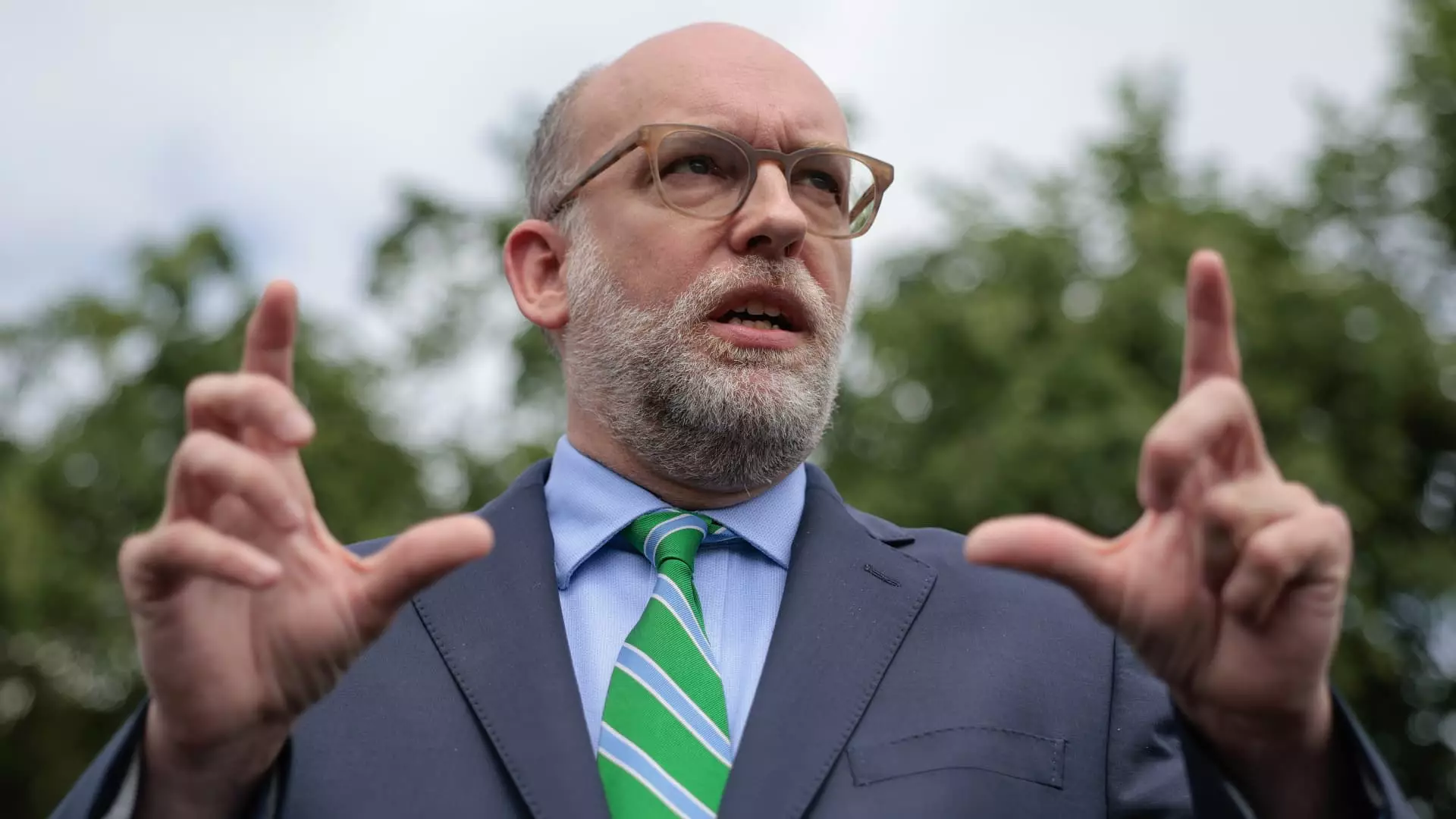In recent months, the narrative surrounding government spending has taken a disturbing turn. Politicians, especially those aligned with the center-left wing of liberalism, must recognize how unchecked partisanship and a cavalier attitude toward fiscal responsibility jeopardize the very fabric of economic stability. The controversy over the lavish renovations at the Federal Reserve—portrayed alarmingly as a “palace”—embodies a larger issue: the dangerous tendency to equate extravagance with inefficiency, often using it as a political weapon rather than a catalyst for meaningful reform.
The depiction of the Fed headquarters as an emblem of excess isn’t merely a matter of aesthetics or logistics; it’s symbolic of a deeper malaise. When political figures pour rhetorical fuel on the fire by describing the project as a “monstrosity,” they distort the complex realities of managing a nation’s financial infrastructure. Such hyperbole is politically advantageous but ultimately undermines trust in institutions. It fosters an environment where fiscal misballs—cost overruns, misjudged priorities—are dismissed as corruption, fueling populist outrage instead of solutions. This trend erodes the credibility of governing bodies and exacerbates public cynicism about the capacity of functional government to manage taxpayer dollars prudently.
By politicizing fiscal oversight to serve partisan narratives, society weakens its commitment to responsible governance. The core issue at stake isn’t just a building’s expense—although $2.5 billion is a hefty sum—but the attitude of dismissiveness toward prudent oversight. Such antics distract from the pressing need to ensure that public funds are allocated with accountability and transparency. When political actors leverage fiscal scandals, they undermine the potential for bipartisan consensus on essential reforms that could modernize and optimize government operations rather than pursue destructive budget cuts or unfounded accusations.
Partisan Politics and the Erosion of Independent Institutions
A more troubling aspect is the emerging pattern of politicizing the Federal Reserve—a once-respected independent institution—via accusations of mismanagement, obstruction, and potential misuse of authority. The recent allegations targeting Chairman Jerome Powell, involving exaggerated claims of renovation costs and mismanagement, serve a strategic purpose. They appear to be weaponized to threaten Powell’s tenure and push the central bank into a more politically pliable stance—specifically, lowering interest rates prematurely or under undue influence.
This tactic is emblematic of a broader threat: the deliberate erosion of the Fed’s credibility to serve transient political goals. When officials from the Office of Management and Budget (OMB) or the White House inject partisan narratives into independent agencies, they dangerously blur the lines of accountability. It’s a slippery slope—once institutions meant to safeguard economic stability become battlegrounds for political loyalty or revenge. This undermines their capacity to execute policy based on economic data, not partisan expediency.
Furthermore, the calculated framing of Powell’s leadership as “grossly mismanaged” feeds into populist narratives that seek to blame transparent institutions for broader economic issues—from inflation to debt management. Rhetoric like this undermines the essential independence of the Federal Reserve, which must base its decisions on nuanced analyses rather than political pressure. If the political culture continues down this path, future administrations might feel empowered to replace or undermine the Fed at the slightest sign of disagreement—an perilous development that risks destabilizing the financial system itself.
The Cost of Partisan Interference and the Risks to Economic Integrity
Beyond the rhetoric lies an undeniable truth: political interference in the realm of monetary policy can have real, destabilizing consequences. The current climate, characterized by accusations and threats, stokes uncertainty in markets and discourages long-term planning. The Fed’s decision to hold or adjust interest rates isn’t a matter of whim or political favor; it’s rooted in complex economic indicators that demand independence and stability.
When political figures threaten to diminish the Fed’s authority or suggest that its leadership can be replaced for political reasons, they risk fueling speculative volatility. The recent appointment of new board members with direct ties to the White House raises questions about the independence of future policy decisions. A weakened institution loses the ability to strike a delicate balance—protecting economic growth without fueling inflation or financial bubbles.
The push for a swift rate cut, championed by some political actors, ignores the broader implications for fiscal sustainability. Artificially influencing the Fed’s decisions may yield short-term political wins but could exacerbate inflation, destabilize currency, or increase the national debt burden in the long run. These are not isolated concerns—they are indicators of a democracy that may be succumbing to the seductive allure of populist rhetoric over sober, data-driven policymaking.
By framing fiscal management as a matter of scandal and mismanagement, political actors dangerously prioritize spectacle over substance. The election of officials with partisan loyalty over expertise risks turning a vital institution into a pawn in broader political games. The real cost is not just financial mismanagement—it is the loss of public trust, economic resilience, and the capacity to navigate unforeseen crises. If liberal-minded policymakers truly value responsible governance, they should champion reforms that reinforce institutional independence, transparency, and fiscal prudence—rather than fueling conflict for political gain.

